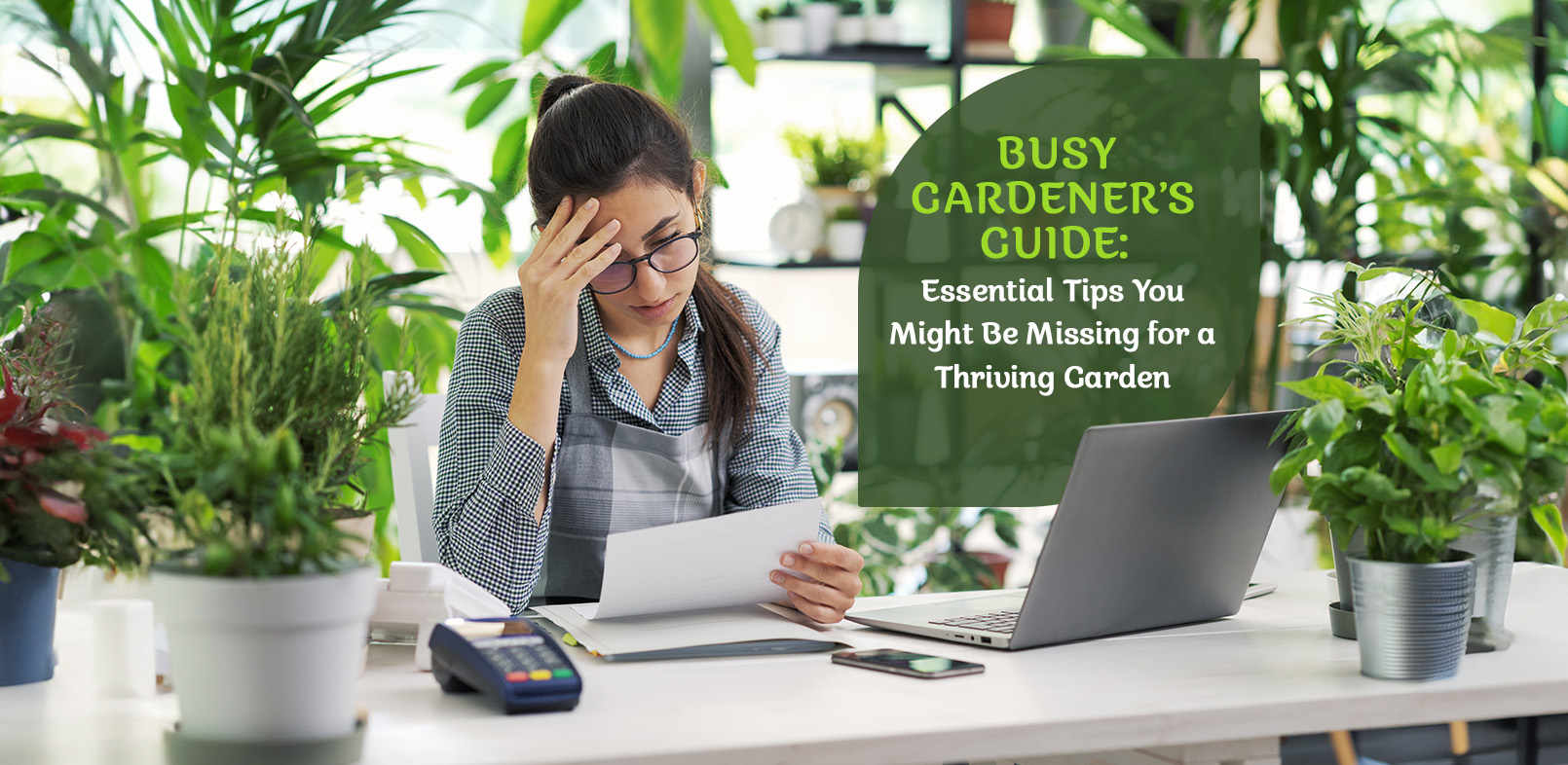
- By: admin
- Comments (0)
- Jun 7
Busy Gardener’s Guide: Essential Tips You Might Be Missing for a Thriving Garden
Gardening can feel like a huge commitment, especially when life is already packed with work, family, and everything else. The good news? With smart planning and a few savvy techniques, even the busiest gardeners can enjoy flourishing plants and fresh harvests. You’ve probably seen plenty of advice on easy plants, mulching, and quick watering fixes. But to truly maximise your garden’s potential while saving time and effort, there are some powerful yet often overlooked strategies worth adding to your routine.
Here’s your ultimate list of missing essentials for busy and urban gardeners that will take your garden from “just surviving” to thriving with less stress.
1. Prioritise Soil Health From the Start
Healthy soil is your garden’s backbone. Regular soil testing helps you understand what nutrients you’re missing and how to amend the soil accordingly. Improving soil structure with organic matter like compost boosts moisture retention and root growth, meaning less watering and stronger plants. Don’t just think about planting; think about nourishing the soil beneath.
2. Mulch Smart: More Than Just Weed Control
Mulch is amazing, but did you know different types serve different purposes? Organic mulches like straw or shredded leaves moderate soil temperature, improve microbial activity, and add nutrients as they decompose. Inorganic mulches like gravel can prevent erosion. Choosing the right mulch can save you watering time and protect your plants better.
3. Practice Integrated Pest Management (IPM)
Instead of reaching straight for pesticides, use natural pest control methods. Attract beneficial insects like ladybugs and lacewings by planting pollinator-friendly flowers. Use traps and barriers to keep pests away, and rotate crops to break pest cycles. This keeps your garden healthy and reduces chemical use.
4. Extend Your Growing Season
Short on time but want more harvests? Try row covers, cold frames, or hoop houses to protect plants from frost and keep them growing longer. This means you can plant earlier in spring and later in fall, maximising your yield without extra work.
5. Rotate Your Crops
Planting the same crops repeatedly in the same spot depletes soil nutrients and invites pests. Rotate plant families each season to keep the soil balanced and disrupt pest life cycles. It’s a simple way to keep your garden healthier with minimal extra effort.
6. Embrace Advanced Water Conservation
Beyond drip irrigation, consider soil moisture sensors or automated watering systems connected to timers. These tools deliver water precisely when and where your plants need it, saving time, water, and preventing overwatering.
7. Compost and Worms: Your Garden’s Power Duo
Starting a compost bin or worm farm can seem daunting, but it’s one of the best ways to recycle kitchen scraps into nutrient-rich soil amendments. Vermiculture (worm composting) speeds up decomposition and produces worm castings, a superfood for your plants.
8. Use Smart Garden Tech
Apps that remind you when to water, npk fertilize, or harvest, along with smart sensors that monitor soil conditions, take the guesswork out of gardening. These tools save time and help you make informed decisions for a thriving garden.
9. Plant for Pollinators
Attract bees, butterflies, and other pollinators by including flowers like lavender, coneflowers, or native wildflowers in your garden. Pollinators are essential for vegetable production and help keep your garden ecosystem balanced.
10. Succession Planting & Intercropping
Maximise your space by planting quick-growing crops between slower ones (succession planting) or growing compatible plants together (intercropping). This technique keeps your garden productive and reduces downtime between harvests.
11. Ergonomics & Safety Matter
Gardening should never cause pain or injury. Use ergonomic tools designed to reduce strain, take frequent breaks, and practice good posture while gardening. These small changes keep you healthy and able to tend your garden longer.
12. Connect with Your Community
Join local gardening groups, seed swaps, or online forums to share tips, trade plants, and get moral support. Gardening is more enjoyable and less work when you have a community to lean on.
Final Thoughts
Busy schedules don’t have to mean neglected gardens. By adding these often-missed strategies to your toolkit, you’ll save time, reduce effort, and enjoy a lush, productive garden that fits your lifestyle. Remember: it’s not about working harder, but smarter.